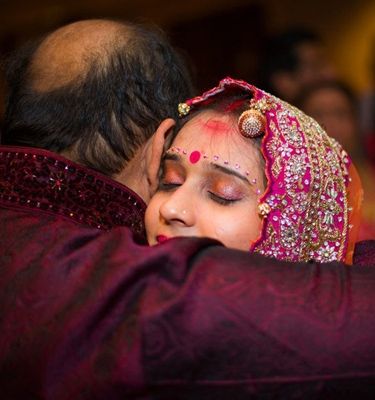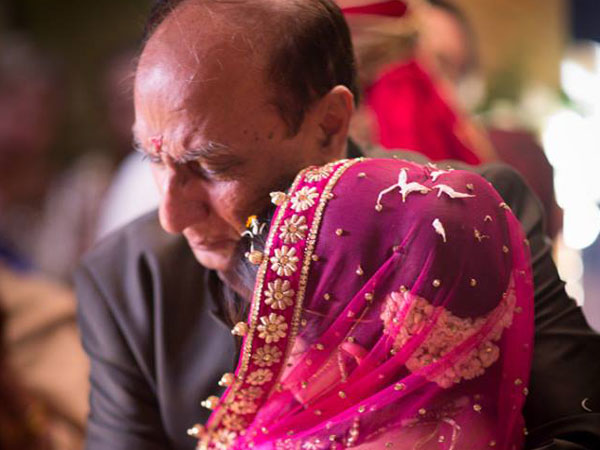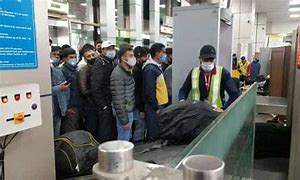Feature
Father-in-law donates kidney to ‘bahu’, after her family refuses

Ahmedabad: Father’s day may be a particular day to show our love and gesture to our father, but here in a real life incident a father-in-law shows his love and concerned to daughter-in-law by donating his kidney, as the woman real father and her family refuses to do so.
Hemdas Vaishnav from Rajasthan put every effort to get a no-objection certificate from a hospital, so that he would be able to donate his kidney to his bahu, Bedamidevi Vaishnav (28). When Bedami’s own father, mother, and sisters refused to donate citing health fears or social concerns, Hemdas decided to take a stand for his ailing daughter-in-law.
Hemdas who is a farmer in Jaisalmer, Rajathan said “The daughter-in-law is also a daughter of the family, she is the wife of my son and the mother of my grandchildren, by saving her life, I am saving my family’s life.” Hemdas rues the fact that while fathers can donate kidneys to their children, a father-in-law has to undertake a mountain of paperwork. Once the NOC comes through, he will donate the kidney to his bahu at the Institute of Kidney Diseases and Research Hospital (IKDRC), Ahmedabad.
Bedami’s husband, Ashok, is a taxi driver. They have two children Yuvraj (8) and Prince (6). She was diagnosed with kidney failure a year ago when her persistent backache, constant weakness, and loss of appetite made it difficult for her to get out of bed.
Bedami said “I would never have expected my father-in-law to donate his kidney to me especially when my family, including my father, had refused to do so.” She has been staying in Ahmedabad for the past four months and is on dialysis.
“I am due for a transplant as soon as we get the NOC. For me, my father-in-law is not only more than a father but is also God.” In Gujarat, over 8,000 kidney transplants have taken place in government, trust-run, and private hospitals in the past years. Experts say that a father-in-law donating a kidney to his daughter-in-law is a rare occurrence.
In Nadiad Kidney Hospital where over 2,800 transplants have been recorded, not a single such instance has been documented. At the IKDRC, which has performed roughly 5,000 kidney transplants, there have been three-odd cases of fathers-in-law donating kidneys to their bahus.
Priya Shah said the transplant coordinator at IKDRC “It is a very rare phenomenon,men who give a lease of life to their bahus should be saluted.”
Entertainment
Meghalaya Reserves Legalized Gambling and Sports Betting for Tourists

The State Scores Extra High on Gaming-Friendly Industry Index
Meghalaya scored 92.85 out of 100 possible points in a Gaming Industry Index and proved to be India’s most gaming-friendly state following its recent profound legislation changes over the field allowing land-based and online gaming, including games of chance, under a licensing regime.
The index by the UK India Business Council (UKIBC) uses a scale of 0 to 100 to measure the level of legalisation on gambling and betting achieved by a state based on the scores over a set of seven different games – lottery, horse racing, betting on sports, poker, rummy, casino and fantasy sports
Starting from February last year, Meghalaya became the third state in India’s northeast to legalise gambling and betting after Sikkim and Nagaland. After consultations with the UKIBC, the state proceeded with the adoption of the Meghalaya Regulation of Gaming Act, 2021 and the nullification of the Meghalaya Prevention of Gambling Act, 1970. Subsequently in December, the Meghalaya Regulation of Gaming Rules, 2021 were notified and came into force.
All for the Tourists
The move to legalise and license various forms of offline and online betting and gambling in Meghalaya is aimed at boosting tourism and creating jobs, and altogether raising taxation revenues for the northeastern state. At the same time, the opportunities to bet and gamble legally will be reserved only for tourists and visitors.
“We came out with a Gaming Act and subsequently framed the Regulation of Gaming Rules, 2021. The government will accordingly issue licenses to operate games of skill and chance, both online and offline,” said James P. K. Sangma, Meghalaya State Law and Taxation Minister speaking in the capital city of Shillong. “But the legalized gambling and gaming will only be for tourists and not residents of Meghalaya,” he continued.
To be allowed to play, tourists and people visiting the state for work or business purposes will have to prove their non-resident status by presenting appropriate documents, in a process similar to a bank KYC (Know Your Customer) procedure.
Meghalaya Reaches Out to a Vast Market
With 140 millions of people in India estimated to bet regularly on sports, and a total of 370 million desi bettors around prominent sporting events, as per data from one of the latest reports by Esse N Videri, Meghalaya is set to reach out and take a piece of a vast market.
Estimates on the financial value of India’s sports betting market, combined across all types of offline channels and online sports and cricket predictions and betting platforms, speak about amounts between $130 and $150 billion (roughly between ₹9.7 and ₹11.5 lakh crore).
Andhra Pradesh, Telangana and Delhi are shown to deliver the highest number of bettors and Meghalaya can count on substantial tourists flow from their betting circles. The sports betting communities of Karnataka, Maharashtra, Uttar Pradesh and Haryana are also not to be underestimated.
Among the sports, cricket is most popular, registering 68 percent of the total bet count analyzed by Esse N Videri. Football takes second position with 11 percent of the bets, followed by betting on FIFA at 7 percent and on eCricket at 5 percent. The last position in the Top 5 of popular sports for betting in India is taken by tennis with 3 percent of the bet count.
Local Citizens will Still have Their Teer Betting
Meghalaya residents will still be permitted to participate in teer betting over arrow-shooting results. Teer is a traditional method of gambling, somewhat similar to a lottery draw, and held under the rules of the Meghalaya Regulation of the Game of Arrow Shooting and the Sale of Teer Tickets Act, 2018.
Teer includes bettors wagering on the number of arrows that reach the target which is placed about 50 meters away from a team of 20 archers positioned in a semicircle.
The archers shoot volleys of arrows at the target for ten minutes, and players place their bets choosing a number between 0 and 99 trying to guess the last two digits of the number of arrows that successfully pierce the target.
If, for example, the number of hits is 256, anyone who has bet on 56 wins an amount eight times bigger than their wager.


























